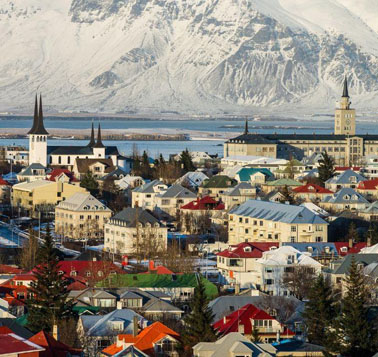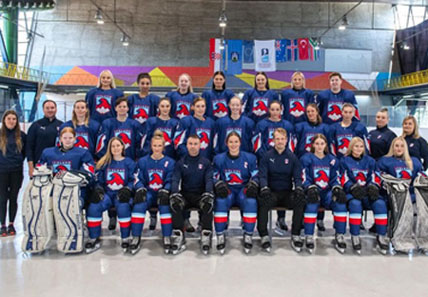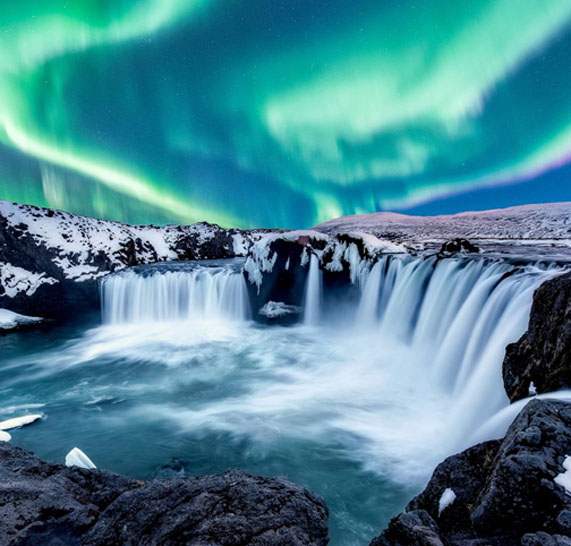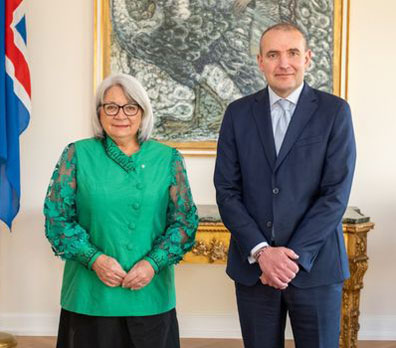Governor General welcomes President of Iceland on state visit (and we the people wonder about alternative models of Canadian head of state)
May 28th, 2023 | By Randall White | Category: In Brief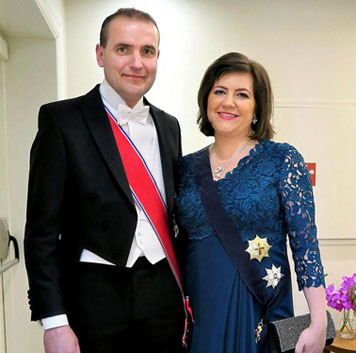
NORTH AMERICAN NOTEBOOK. RANDALL WHITE, FERNWOOD PARK, TORONTO, SUNDAY, MAY 28, 2023. For most Canadians the big political drama of May 29, 2023 will be the Alberta provincial election — a duel between two feisty middle-age women on the (almost socialist?) left and (more than almost extreme conservative?) right, which may or may not surprise us all, in one way or another.
Meanwhile, however, at 9:55 AM tomorrow morning, with the sun shining on the “Grounds of Rideau Hall” in Ottawa : “Governor General Simon and Mr. Whit Fraser will greet His Excellency Guðni Th. Jóhannesson, President of Iceland, Ms. Eliza Reid, Her Excellency Lilja Alfreðsdóttir, Minister of Culture and Business Affairs, and His Excellency Hlynur Guðjónsson, Ambassador of Iceland to Canada, and Ms. Jeannette Menzies, Ambassador of Canada to Iceland. The Governor General will deliver welcoming remarks, along with other dignitaries, and inspect a guard of honour.”
This will mark the official start of a four-day state visit of the President of Iceland to Canada, from May 29 to June 1. And this is interesting not just because Iceland is another northern democracy like Canada, with a rugged geography that is cold for much of the year. (Granting that there are of course notable differences in size. Iceland has not quite 103,000 square kilometres and some 348,000 people. Canada has some 9.98 million square kilometres and 39.6 million people.)
To start with, the current First Lady of Iceland, Eliza Reid — the wife of President Guðni Th. Jóhannesson — is a Canadian who grew up in the Ottawa region. The couple met while both were attending Oxford University in the United Kingdom. Ms. Reid married the then plain Mr. Jóhannesson when they moved to Iceland after university. And while “working in writing, editing, journalism, marketing and communications” she also gave birth to “four children, aged 9, 7, 5 and 3” by the time her husband was elected President of Iceland in the summer of 2016.
What strikes me as still more interesting (and important) is that the office His Excellency Guðni Th. Jóhannesson currently holds is a model of at least one alternative that could fill a void for the “2 in 3 Canadians” who told a recent Abacus poll that they “would vote to eliminate the monarchy in Canada .”
President Jóhannesson, that is to say, is not a president in any sense seriously comparable to President Biden in the United States — or even to President Macron across the ocean in France. He is merely Iceland’s (largely ceremonial) head of state. The Prime Minister of Iceland, Katrín Jakobsdóttir, is the head of government.
As Wikipedia explains the matter : “When Iceland became a republic in 1944 by the passing of a new constitution the position of King of Iceland was simply replaced by the president of Iceland.” And President Jóhannesson has more in common with the UK monarch’s Canadian representative Governor General Simon, who will deliver welcoming remarks on the Grounds of Rideau Hall tomorrow morning, than he has with the President Biden who is both head of government and head of state in the currently troubled democracy of the USA.
If in fact Canada were to turn our current office of Governor General from a representative of the Canadian head of state who lives in the United Kingdom to a Canadian head of state in her (or his) own right, it might make sense not to call the reformed or democratized but still largely ceremonial office of governor general a president — just to avoid any confusion with the much different office of president of the United States next door.
Similarly, the democratized governor general (or monarch, as it were, or new ceremonial head of state) is directly elected by the people of Iceland — like the similar ceremonial head of state in Ireland or even the new office of this sort currently proposed by the Australian Republic Movement. Yet in Iceland, perhaps partly because of its unusually small territory and population size, this office has sometimes had more non-ceremonial power in theory — which has been taken advantage of by some presidents since 1944, but not by others.
At the same time, President Jóhannesson has a more moderate view of his responsibilities. Before being elected in 2016 he was a history teacher who had never before held public office. But he was a “scholar of the Icelandic presidency” who appeared often on TV in the midst of a scandal over Icelandic prime minister Sigmundur Davíð Gunnlaugsson’s compromising appearance in the so-called Panama Papers. Urged by others to run in 2016 Mr. Jóhannesson promised to be a “less political president” than his predecessor Ólafur Ragnar Grímsson.
For those who nonetheless remain sceptical about the broad concept of a directly elected ceremonial head of state in a parliamentary democracy that is not also a constitutional monarchy (as eg Canada, Australia, Jamaica, Denmark, Norway, and Sweden still are), there are also alternate models of a ceremonial head of state who is indirectly elected by federal and state (or provincial) legislatures in such other republican parliamentary democracies as India and Germany.
Meanwhile again, over the next four days Iceland’s “President and Ms. Reid will tour Ottawa, Halifax, St. John’s and Toronto.” Their visit “builds upon the Governor General’s trip to Iceland in 2022,” and “will reinforce the strong ties between Canada and Iceland.” It is of course no accident that it is Governor General Simon (and not King Charles III, attending to his own business in the United Kingdom) who will be playing the practical role of Canada’s head of state during the visit of the Icelandic head of state. And it is not that big a step forward to make the Governor General Canada’s head of state in theory as well as practice — as such places as Ireland, Iceland, India, and Germany have already done (and long ago at that!).
